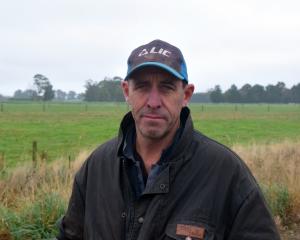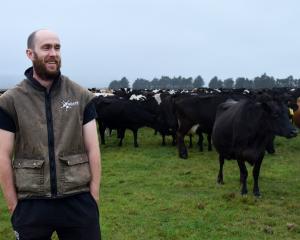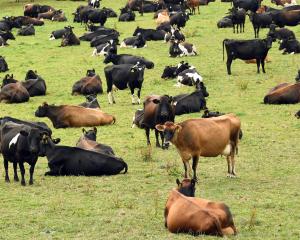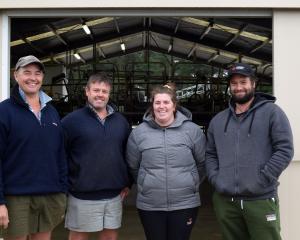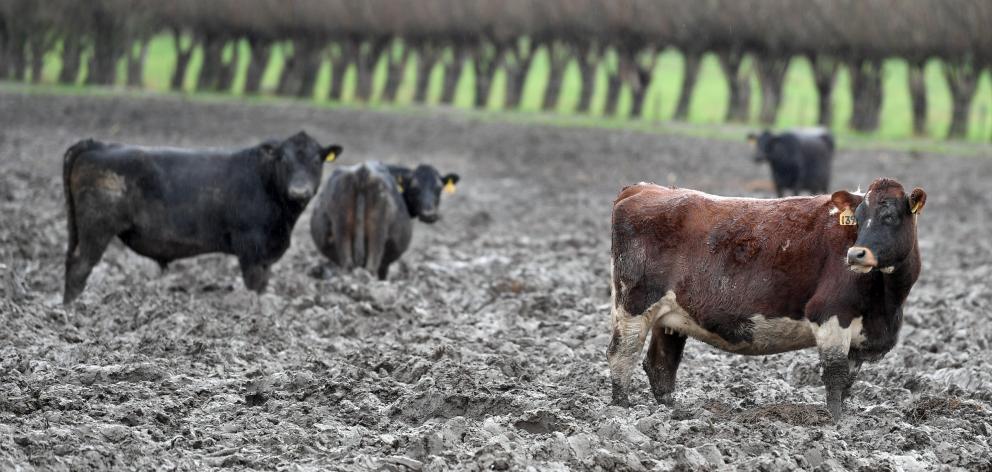
Chief veterinary officer Helen Beattie, of Dunedin, said intensive winter grazing and over-wintering on crops were common practices in some areas, yet often resulted in poor welfare for animals and damage to the environment.
``As veterinarians, it is challenging to see the conditions in which some livestock are living. For example, when they are constantly living on and in mud, their physical and behavioural needs are unlikely to be met.
``We are concerned for the wellbeing of all components - animals, people and the environment - but the NZVA's first concern is for the animals.
``This is not simply about the physical health issues these animals may face, but also their mental state ... which must be considered under the Animal Welfare Act.''
Dr Beattie has been actively discussing those issues with the NZVA's primary industries branch committees, NZVA members, other stakeholders and environmental experts.
``There's a lot of research in this area that supports our concerns. For livestock to be constantly knee-deep in mud, without adequate shelter, and unable to lie down, rest and ruminate as they normally would, is stressful and harmful to their health overall,'' she said.
Issues included poor hoof health that contributed to claw lesions and lameness, inability for proper rest and rumination, increased risk of mastitis, reduced access to a nutritionally balanced diet, unacceptable body condition scores and lower resistance to disease.
NZVA would welcome engagement from regulators and other parts of industry to work together to develop solutions.
Dr Beattie believed it was possible for intensive winter grazing to fulfil all the requirements of the Animal Welfare Act. However, modifications to present practice would be needed in many instances.
A pan-industry initiative would mean farmers were supported and provided with solutions, she said.
``Industry as a whole has allowed for this practice to become common. We all have a responsibility to now rectify the situation, and to protect not only our animals, but the environment and the people who are affected by this practice,'' she said.
Beef + Lamb New Zealand chief executive Sam McIvor said encouraging best practice across the sector was a high priority for the organisation.
``We have provided farmers with support and resources on wintering practices and partnered with organisations like DairyNZ in running field days and other events.
``We are also investing in building a better understanding of the impacts of winter grazing on different soil types, soil loss and the impacts of different animals, investigating the effect of different crop establishment techniques and assessing broader profitable farm system options to reduce the potential impacts of wintering heavier animals,'' he said.
Federated Farmers meat and wool chairman Miles Anderson said farming was a challenge at times, no matter where in the world.
``Consider the dust bowls that farmers in many parts of Australia are grappling with, or the pugging in paddocks in Canada when the snow melts.
``We have been trying to figure out how to best mitigate sodden winter paddocks in New Zealand for a number of years now and farmers are developing systems that improve the situation but you can't actually change the weather,'' Mr Anderson said.
Otago Regional Council director environmental monitoring and operations Scott MacLean said farmers were encouraged to use environmental best practice.
Winter grazing had the potential to mobilise sediment and other contaminants to waterways, but careful site selection and the use of riparian buffers could help mitigate the risk of sediment runoff.
The Ministry for Primary Industries said wet and muddy conditions were to be expected at this time of year with slow pasture growth, rain and when feeding winter crops.
It reminded farmers to ensure animals were well cared for and seek advice if they needed to.
``We recognise that this time of year brings many challenges, and managing stocking densities, pasture, break feeding on crops and minimising soil damage are just some of these. But farmers must be vigilant to not compromise animal health and welfare during these challenging months of the year,'' director of animal health and welfare, and veterinarian Dr Chris Rodwell said.
MPI recognised using winter crops as a good nutritional support to pasture and other feeds during winter was an important part of livestock feeding in New Zealand extensive farming systems.
However, there was a point where animals were adversely impacted by muddy paddocks and MPI continued to receive complaints.
Farmers were urged to seek advice and follow good practice to avoid problems. There was some very good advice available from vets and sector groups, Dr Rodwell said.


